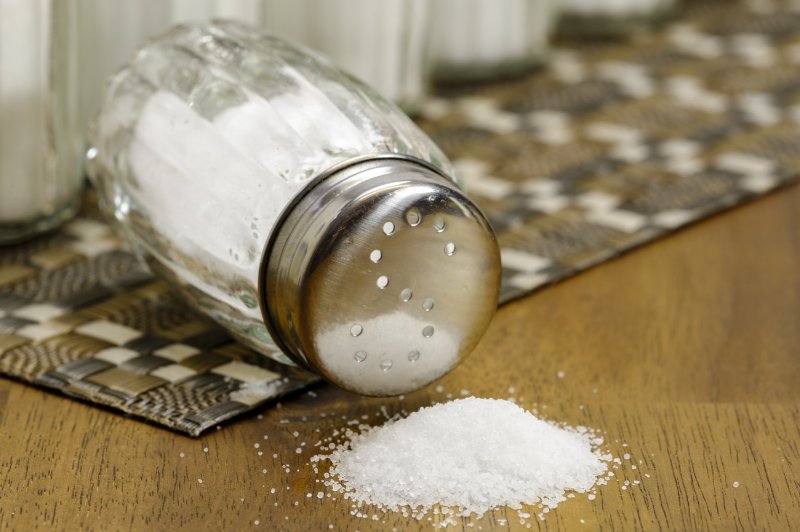A new study suggests restricting salt intake too much may actually worsen outcomes for people with a common form of heart failure. Photo by Bru-nO/pixabay
July 18 (UPI) -- Restricting salt intake too much actually may worsen the prognosis for people with a common form of heart failure, a study published Monday suggests.
The research, published online in the journal Heart, suggested the possible benefit of adding salt to cooked food for certain heart failure patients.
And researchers said the association between too much salt restriction and poor outcomes was more pronounced in patients age 70 or younger and in non-White people.
"Over-strict dietary salt intake restriction could harm patients with [heart failure with preserved ejection fraction] and is associated with worse prognosis," the Chinese researchers said in a news release.
"Physicians should reconsider giving this advice to patients," they said.
With this type of heart failure, which accounts for half of all cases, the heart's left ventricle can't fill properly with blood, so less blood is pumped out into the body, the scientists explained.
Salt restriction is frequently recommended in heart failure guidelines, the scientists said.
But the optimal amount in patients with heart failure, especially those with heart failure with preserved ejection fraction, remains controversial.
The American Heart Association recommends no more than 2,300 milligrams a day and an ideal limit of no more than 1,500 mg. per day for most adults.
But the researchers said the optimal restriction range and its effect on patients with heart failure with preserved ejection fraction isn't clear because these individuals often have been excluded from relevant studies.
To explore the association with salt intake, the researchers drew on secondary analysis of data from 1,713 people age 50 and older who took part in a phase 3, randomized, double-blind, placebo-controlled study known as TOPCAT.
That research was designed to determine whether the drug spironolactone could effectively treat symptomatic heart failure with preserved ejection fraction.
Participants in the new study were asked how much salt they routinely added to the cooking of food staples, such as rice, pasta and potatoes, soup, meat and vegetables. This was scored as 0 points if they added no salt; 1 for 1/8 tsp., 2 for1/4 tsp., and 3 for 1/2 tsp. or more.
Researchers then monitored the participants' health for an average of 3 years, looking at a composite of death from cardiovascular disease or admission to hospital for heart failure plus aborted cardiac arrest, the news release said.
They also looked at secondary outcomes: death from any cause and death from cardiovascular disease plus hospital admission for heart failure.
Nearly half the participants had a cooking salt score of zero. Of these, more than half were men at 56%, and 81% were White. They weighed significantly more than those individuals with a cooking salt score above zero.
The study found that participants with a cooking salt score above zero were at significantly lower risk than individuals whose score was zero, mainly because they were less likely to be admitted to hospital for heart failure.
Participants "of Black and other ethnicities" seemed to benefit more from adding salt to their cooking compared with those of White ethnicity, although the numbers were small, the news release said.
The scientists conceded that the cooking salt score was self-reported, and said they couldn't rule out the idea that people with poorer health might have been advised to further restrict their salt intake.















